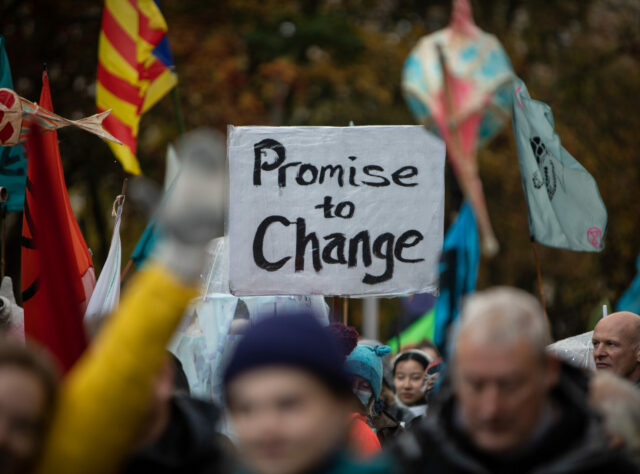
COP27 has the potential to be groundbreaking in terms of leadership and action in the face of a growing climate crisis.
Just a few days ago, I shared news of a series of weather disasters that have befallen World Land Trust’s conservation partners in recent months. These tragic events – droughts, hurricanes, typhoons and landslides – are being intensified by climate change, once again highlighting the urgency with which this global crisis needs to be addressed.
The UN’s annual climate change summit, COP27, begins on Sunday 6 November. It remains to be seen whether COP27 will truly become “the world’s watershed moment on climate action” as its organisers want it to be; but whatever deals are struck, or indeed broken, during the upcoming two weeks in Egypt, we can still choose to take responsibility for our own environmental impact and think about what we can do to make a difference at a pivotal time for the planet.
Responsibility has been a consistent theme in the run-up to COP27. When UK Prime Minister Rishi Sunak announced last week that he would not be attending, his decision was roundly criticised. The UK still holds the COP presidency, having hosted last year’s summit in Glasgow, where Sunak (then Chancellor) led discussions on climate finance. I was therefore both relieved and pleased to see that Prime Minister Sunak has now reversed his decision on COP27 and confirmed that he too would travel to Sharm El-Sheikh “to deliver on Glasgow’s legacy of building a secure and sustainable future”.
The PM’s presence at COP27 will send a strong message that climate change should always remain a top priority for our governments, even when serious domestic challenges must also be attended to. By gathering global leaders together, events like COP27 can act as forums to energise the international collaboration that is essential to tackling the climate crisis. But these events themselves have enormous carbon footprints, so it is imperative that they deliver tangible results, and not yet more unfulfilled pledges.
Major economies and emitters like the UK, that have played such a huge role in escalating climate change, must take on the responsibility of helping those most vulnerable to its effects. Despite their much smaller emissions footprint, less-developed nations are suffering disproportionately from rising temperatures, rising sea levels, and weather disasters that are growing in both intensity and frequency. According to the V20, a group comprised of the world’s most climate-vulnerable nations, climate change has already eliminated one-fifth of their wealth. This cannot be considered acceptable by any reasonable person, so we must make a renewed effort to urgently redress this balance while we still can.
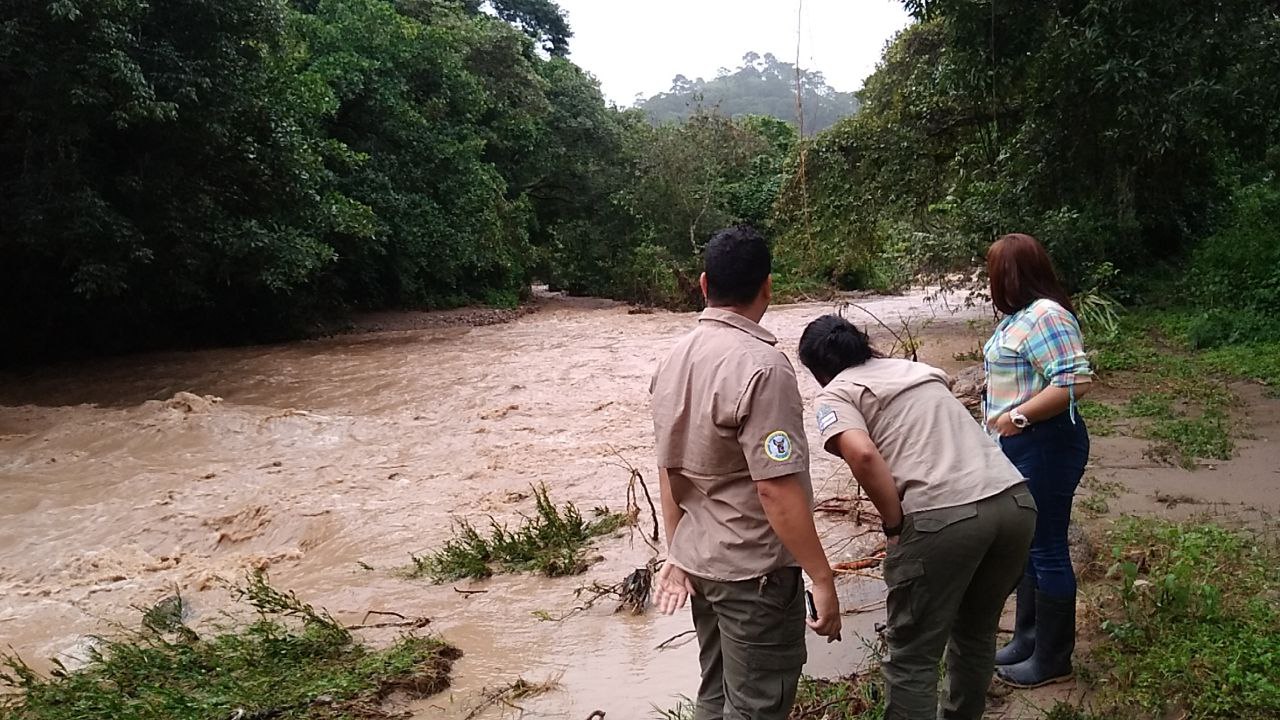
AESMO staff assess a river swelled with waters from Hurricane Julia. Credit: Victor Saravia
Missed deadlines, missed targets, missed opportunities
The UK government recently failed in its leadership role when it missed a deadline to pay $300 million into the Green Climate Fund (GCF), founded in 2010 to help developing countries adapt to and mitigate the effects of climate change. Three “urgent” GCF projects have had to be put on hold as a result. This failure of leadership from the outgoing holders of the COP presidency is just the latest in a long line of broken promises, but the UK isn’t alone in this – governments around the world have been missing targets on critical issues like emissions and biodiversity for decades now, and a longstanding pledge to provide $100 billion in climate finance per year to developing nations has still not been fulfilled.
Gabon’s environment minister Tim White recently called out the lack of “sincere engagement” from developed nations and their failure to deliver promised climate funds to the parts of the world that need it most, saying: “Until more people in developed nations are dying because of the climate crisis, it’s not going to change.”
This is a stark assessment that, unfortunately, is hard to argue with. I wrote last year that only truly systemic change will allow us to tackle the climate crisis at the scale that is needed, and though there were positives to be taken from the deals made at COP26, much work still needs to be done. Almost all the world’s governments failed to “revisit and strengthen” their climate plans this year, which they had agreed to do at COP26, and the UN’s own recent assessment is that there is no credible pathway to 1.5°C in place This is a damning indictment of the repeated grand gestures that fail to be met with commitment and political will.
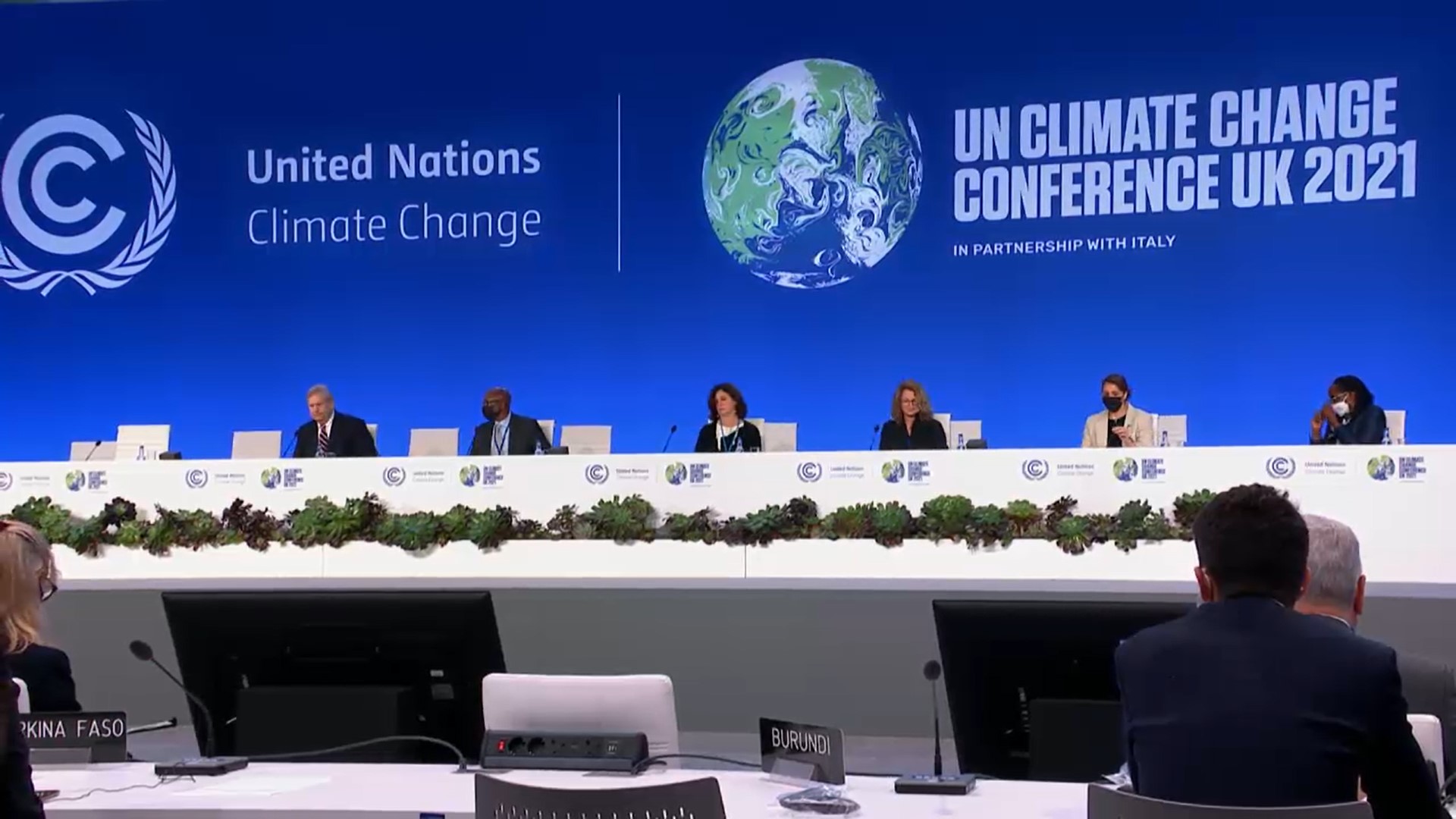
COP26 brought some positives, but there is much work still to be done.
In the next 10 years, the rise in average global temperature is currently on track to exceed 1.5°C, the target set in the 2015 Paris Agreement and reaffirmed last year at COP26. With a likely 2.8°C rise forecast by the end of this century, COP27 must mark a shift not only in global leaders’ commitment to systemic change, but also how they’re held accountable for delivering it. In the words of UN Secretary-General António Guterres, it is time to “move beyond endless discussions” and governments must immediately start to implement policies that will provide much-needed funding to vulnerable nations, like implementing a windfall tax on fossil fuel companies.
I’m afraid that, after following statement after statement throughout my career, I’m not optimistic that anything different is likely to come out of COP27 though. That’s just not good enough, and our political leaders need to significantly step up their actions if they don’t want history to judge them as failing to address the greatest challenge facing humanity. However, I do remain optimistic about our future, and that is for one reason: people. Particularly the younger generations who are not willing to accept the business-as-usual argument that has persisted for so long, and are willing to take active steps to do something about it.
People power
When faced with the enormity and diversity of the climate crisis – the sheer amount of causes and effects – coupled with the continued failures of those who have the power to enact sweeping solutions, it is understandable that some of us at times feel a sense of helplessness and hopelessness. Why opt for the vegan option over a steak? Why choose to cycle to work? The truth is, that many of us now appreciate that we’re not powerless. We may not be able to easily change the global political landscape, but there is a huge amount that all of us can do, and while some it is indeed personal – changing one’s diet or mode of transport – there are also lots of ways for you to increase the scale of your impact.
Here in the UK, bringing environmental issues to the attention of your MP or local councillor has the potential to bring about change that has a much larger impact on climate change than you may be able to accomplish yourself. If the issue is put in front of them time and again, either through multiple constituents or just your own persistence, they will have to address it. If no-one speaks up, history has shown that they may very well ignore it. Click here for more information on how to contact your MP or visit WriteToThem.com for an easy-to-use alternative. The Climate Coalition has some helpful tips on how to engage with your MP about climate change.
If you’re employed and contribute towards a workplace pension fund, ask your employer where your money is being invested. There may be a preferable alternative to your current workplace pension fund that invests in less climate-intensive and more socially responsible business sectors. This is an action that we took at WLT to make sure that our pensions help to also deliver our mission, and it’s not only easy to do, but impactful. Recent research has found that 60% of leading pension providers haven’t published short-term emission reduction targets, while 80% have not yet committed to tackling deforestation.
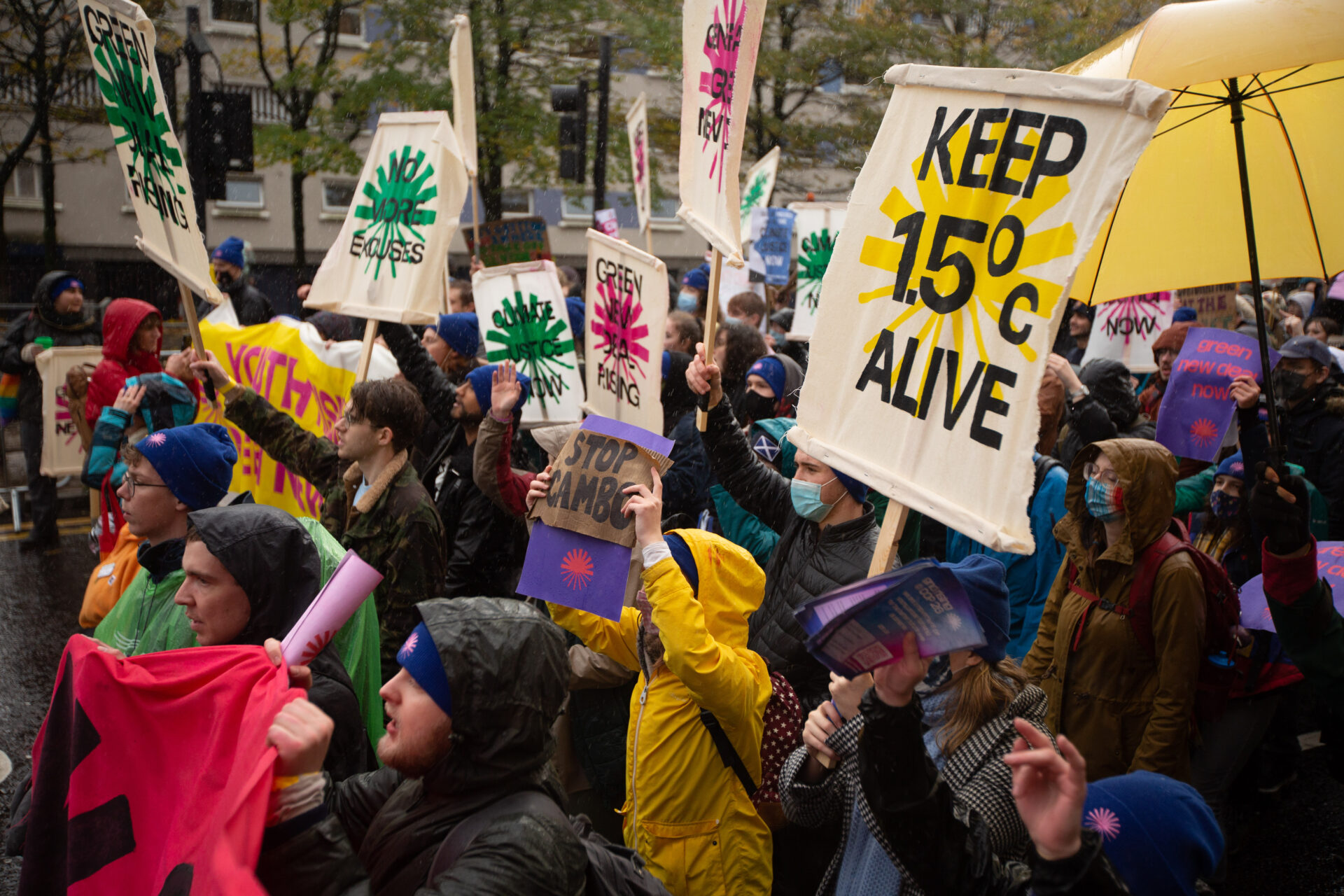
Attending climate protests is just one way you can make a difference as an individual.
Difficult choices
While many of us want to take action against climate change, the cost-of-living crisis is affecting our ability to do so. Last month a Global ESG Monitor report found that the cost of living had replaced climate change as the UK public’s top concern, while participants in a YouGov survey ranked climate change as less important than 10 other spending areas in the UK, including pensions, housing and defence – a significant drop-off from this time last year. And only this week, when I happened to be in London for a meeting and walking past the Bank of England, they reported that the UK is facing the prospect of the longest recession on record and a “very challenging” economic situation for the next couple of years.
We have all felt the impact of the current crisis, and yet we cannot afford for climate change to be put on the backburner – our window of opportunity to avoid catastrophe is far too narrow. A climate breakdown will cost us far more in the long run through its impact on things like health and food prices, not to mention repair efforts and humanitarian aid from the intensifying droughts, hurricanes and other disasters that WLT partners are already enduring.
Financial constraints mean that many of us are unable to completely overhaul our lives, but we can truly all make a difference when we come together. “In order to change things,” says Greta Thunberg, “we need everyone – we need billions of activists.” Whilst offsetting carbon is not the answer to climate change – we need to first reduce emissions, and offsetting must never be used as an excuse to continue as usual – WLT’s Carbon Calculator can help you to start quantifying your unavoidable carbon emissions, and there’s nothing too small to quantify. You could start with a single car journey or your home’s annual energy usage.
By offsetting with WLT, you’ll be protecting carbon-rich forests and providing benefits to local communities and biodiversity; you can find out more about our projects here. We are also in the process of establishing a new Carbon Balanced project with our Zambia partner Kasanka Trust, which will help to deliver natural climate solutions led by local people.
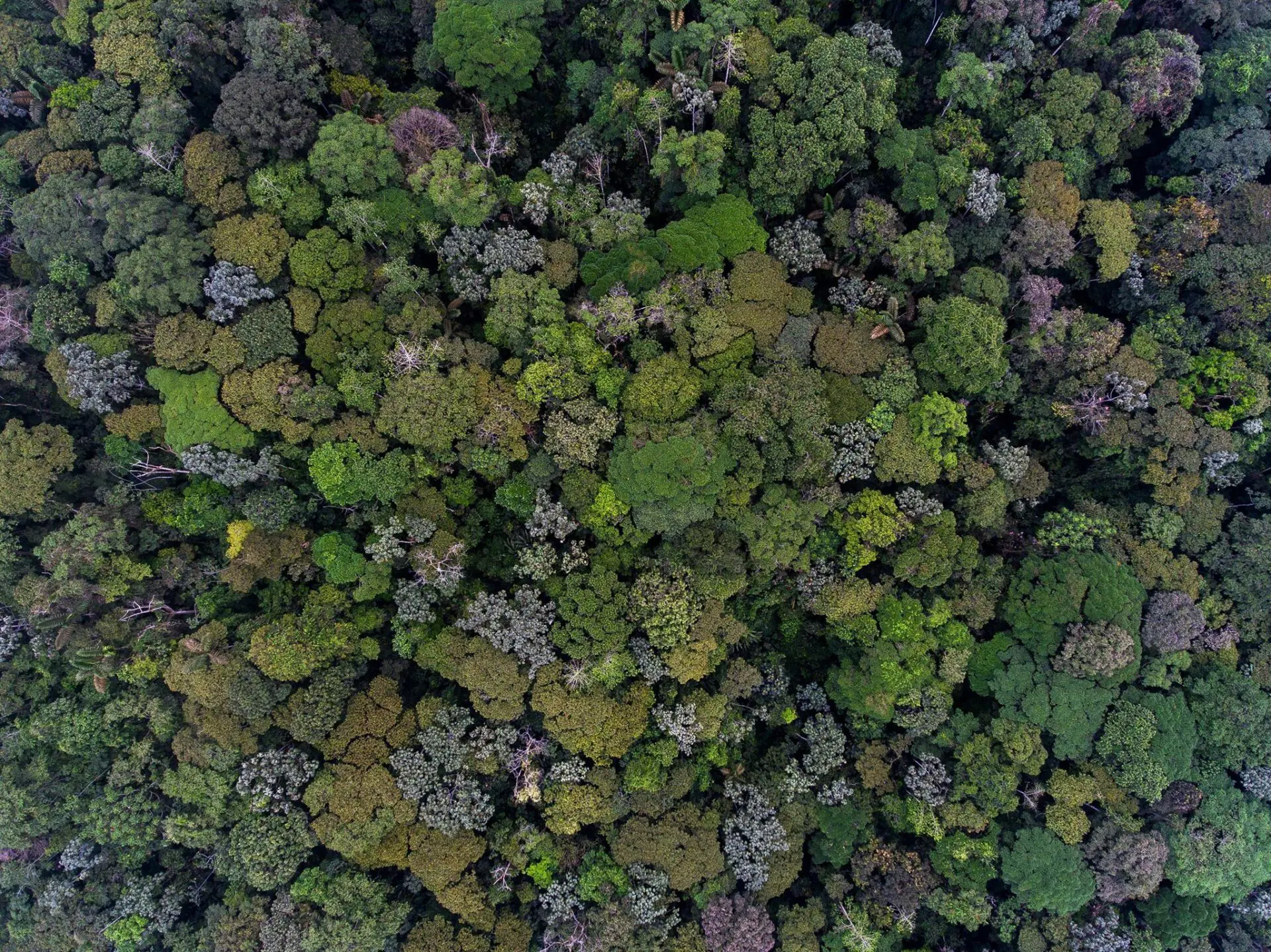
By offsetting with WLT, you’ll be protecting carbon-rich forests. Credit: James Muchmore
Returning again to the theme of responsibility, WLT only works with organisations that have already taken steps to measure and reduce their carbon footprint. We expect to see emissions minimised as much as possible and will only offset an organisation’s unavoidable residual emissions. Offsetting has (rightly in some cases) attracted criticism from some quarters, but in our view it is an essential immediate step that all organisations must take as we transition to a less carbon-intensive society, preferably as part of initiatives that will hold these organisations to account, like Science-Based Targets.
One day I hope that WLT will no longer need to provide offset solutions, as reducing emissions will be embedded in everyone’s actions, and sufficient funding will be made available to drive forest protection alongside economic development for rural communities. But we’re not there yet, and in the meantime, these simple actions have real impacts, and provide a myriad of future possibilities for the people and nature that our Carbon Balanced projects support.
By focusing on what we can do rather than what we can’t, I remain optimistic. I see great hope for the future in our partners, and the courage they show every day in the field; I see it also in WLT supporters, and indeed in supporters of other environmental organisations; I see it in friends, family, colleagues, and – in general – wider society as a whole.
We now understand the threats facing our shared planet better than ever before, and there has never been a greater desire from global citizens to drive the solutions that will usher in a safer future for us all. It is now up to global leaders to ensure this movement for change is honoured in every deal, pledge and agreement made at COP27.

